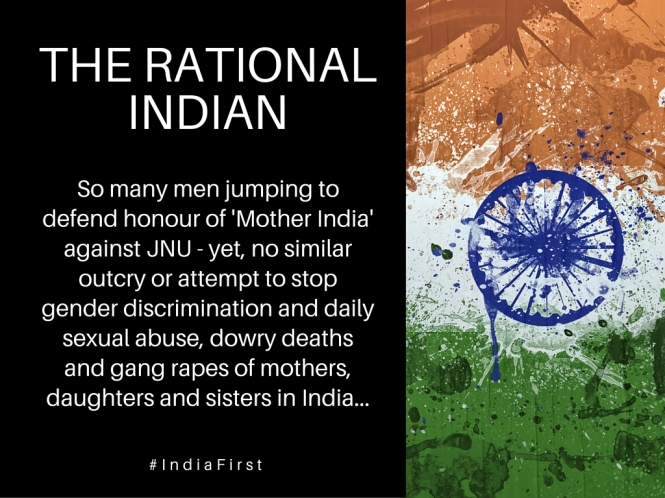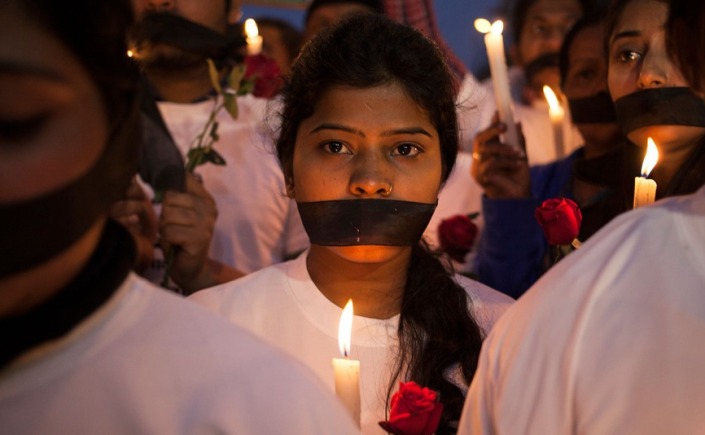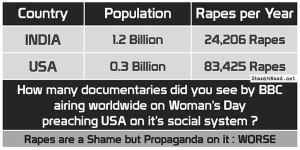Seconds later, a silky voice answered and I told her what was on my mind. ‘
I understand you can help me set up an hour of good chat,’ I said.
‘Sure, honey. What do you have in mind?’
‘I’d like to discuss Melville.’
‘Moby Dick, or the shorter novels?’
‘What’s the difference?’
‘The price. That’s all. Symbolism’s extra.’
‘What’ll it run me?’
‘Fifty, maybe a hundred, for Moby Dick. You want a comparative discussion — Melville and Hawthorne? That could be arranged fora hundred.’
The dough’s fine,’ I told her and gave her the number of a room at the Plaza.
‘You want a blonde or a brunette?’
‘Surprise me,’ I said, and hung up.
— Excerpt from The Whore of Mensa by Woody Allen
There are three kinds of men on this planet: those who are unabashed about their lust for women; those who lust for men; and lastly, superior beings who claim to have trained their refined intellect to take over the reins from their not so-refined hormones. The last variety is fairly evolved, calls itself the sapio sexuals, aroused primarily by intelligence (while the rest of us dumb mortals feed off stupidity). A shapely breast can never be the object of their lust. But, a heated discussion on Ezra Pound can hit the spot, and how.
The character in Woody Allen’s brilliant story, The Whore of Mensa, is an intellectually unfulfilled man who has one night stands with women who can fulfill the cerebral needs his wife can’t. It is irrelevant that the man is sated only by paying for and owning the woman’s intellect, even if for an hour, and doing with it as he pleases. While most men feel this story redeems the one-track-mind reputation they’ve notched up, to me, it simply reiterates the innate masculine need to overpower and control. Isn’t there more to an individual than his or her libido, intellectual or sexual?
Profile: male professional, 30 to 55; marital status: not relevant. Symptoms vary from sudden nervousness around the opposite sex, inability to hold eye contact with female colleagues and clients, compulsive need to keep hands occupied with props such as cell phones, cigarettes, pencils or coffee mugs. And, an almost delirious repetition of, “This is not intended as an inappropriate overture. If you find it offensive, I apologise. It will never happen again. Please, don’t sue me,” accompanying every banal gesture made around a woman.
Yup, Disclaimeritis is raging through the corridors and cabins of urban India. The good news is that frisky men with roving eyes and wandering hands will soon be the dinosaurs of the professional world. The not-so-good news is that it isn’t just the crude cabinet minister or misogynistic government servant who’s talking about reviewing his HR brief. Erudite CEOs of multinationals, known for their erstwhile keen sense of judgment and fair play, are re-evaluating, too. The risk factor on female human resource investment has just shot up exponentially post the Criminal Law (Amendment) Act 2013, particularly after a suave CEO shed his urbane skin and flashed us with his reptilian brain.
The rumblings are palpable. It’s not so much about the new female hires, they claim, as about the many males who pre-exist in the professional environment. “Give our boys a little time to familiarise themselves with what is now kosher and what is not.” This could take a while, ladies. Should we stash away our well-endowed resumes and start baking cupcakes? I don’t have to froth at the mouth to know how long, arduous and soul-sapping a journey it’s been for us to get within touching distance of that glass ceiling. Question is, is it all going to be for naught just because you gentlemen are incapable of keeping it in your pants?
In fact, the recent brazen breach by Tarun Tejpal has resulted in the drawing up of a whole new timeline in the man-woman dynamic in India, i.e., Before Tejpal (BT) and After Tejpal (AT). While BT was clearly a time of free flowing testosterone, zero risk and, therefore, zero reflection in the male mind scape, AT is attempting to usher in restraint, gender appropriateness, and all the stuff that mama hoped would take root in your mind, but didn’t quite.
Ah yes, distractions. So difficult to keep it together when you keep getting wracked with Guilty by Gucci, every time that lissome intern walks past. How are you to keep your mind on P&L when the M&S lingerie haul is being discussed so ardently within earshot? Not easy, we get it. Maybe, you’d prefer a whimpering infant pawing at your chest demanding lunch, as you attempt to finish the last two slides in your presentation. Or, perhaps, you’d like to plan the homicide of that feckless maid who bails out of babysitting the very evening you have to play host to the team from London headquarters.
Such a bummer. We girls were just about getting comfortable in those big boardroom chairs and those sky-high barstools, and bam, we’re being yanked off, right back to square one, at least mentally, if not yet, physically. So, here we are again, girls and boys, back in the old schoolyard, sworn enemies who can’t seem to see beyond our nu-nus and pee-pees. Rumour is that somewhere north of the pelvis, lies a throbbing bundle of nerves that’s the real McCoy. It’s the potent stuff that makes me uniquely me, and you singularly you. The sapio sexuals we spoke of earlier seem to know it, but, I’m not sure they’ve quite got it yet.
Because the cerebrum knows no gender. The intellect, therefore, becomes our most abiding personal signature. The next time you high-five or air-punch that dude who totally gets you because it’s a guy thing, you may want to double check if there’s a sell-by date on his testosterone reserves. Aw, am I being a bitch?
The issue simply boils down to whether men and women can work together without turning the office space into a battlefield, or, a bonkfest? Undoubtedly, we’ve been here several times. Yet, intriguingly, it’s like laying snakes and ladders, a case of climb-sting-slide in perpetual motion. Ouroboros, in a linear format.
Can a man appreciate a woman for her skills as a professional, her intellect as an individual and her qualities as a human being without being influenced by her pheromones? And, vice-versa, with women? Since corporates and marriages are still alive, despite the fact that most extramarital affairs happen at work, I’ll say that we can function without tearing each others clothes or heads off, by and large.
It’s interesting that most, or, all sexual harassment cases in the media glare invariably involve married men. Do single men not feel the need their attached brothers do to harass? Or, do their overtures not qualify as harassment because they are unattached, and, therefore, potentially available to the women they come on to? Ladies, are we labeling an overture depending on the marital status of the individual making it?
The law has woken up a bit late and gone into overdrive on this one, leaving swathes of irate men fuming all over the country. But, boys, you know what? Like marriage, nothing’s perfect. We’ve put up with 40 years of being groped in trains and buses, accepted it as a given, even taught our daughters the fine art of elbowing, just as our mothers taught us. Give us a break now. Can and will the new rape law be abused? Possibly. Just like every other law can potentially be.
Maybe, it’s time for us women to take a leaf or two from you, sit with our legs spread wide apart, scratch our privates in public, breastfeed the baby on an as-is where-is basis, without a care in the world. And, for those men who have had to lump their share of lascivious female bosses on their way to becoming CEO, I can only say, make some noise, desi boys. Speak up and be heard. It may take about a hundred years, but, don’t you lose hope. We’ll be right behind you, groping those worked-out glutes, having the last law.
(Reprinted with permission from Man’s World magazine; originally published January 2014)











